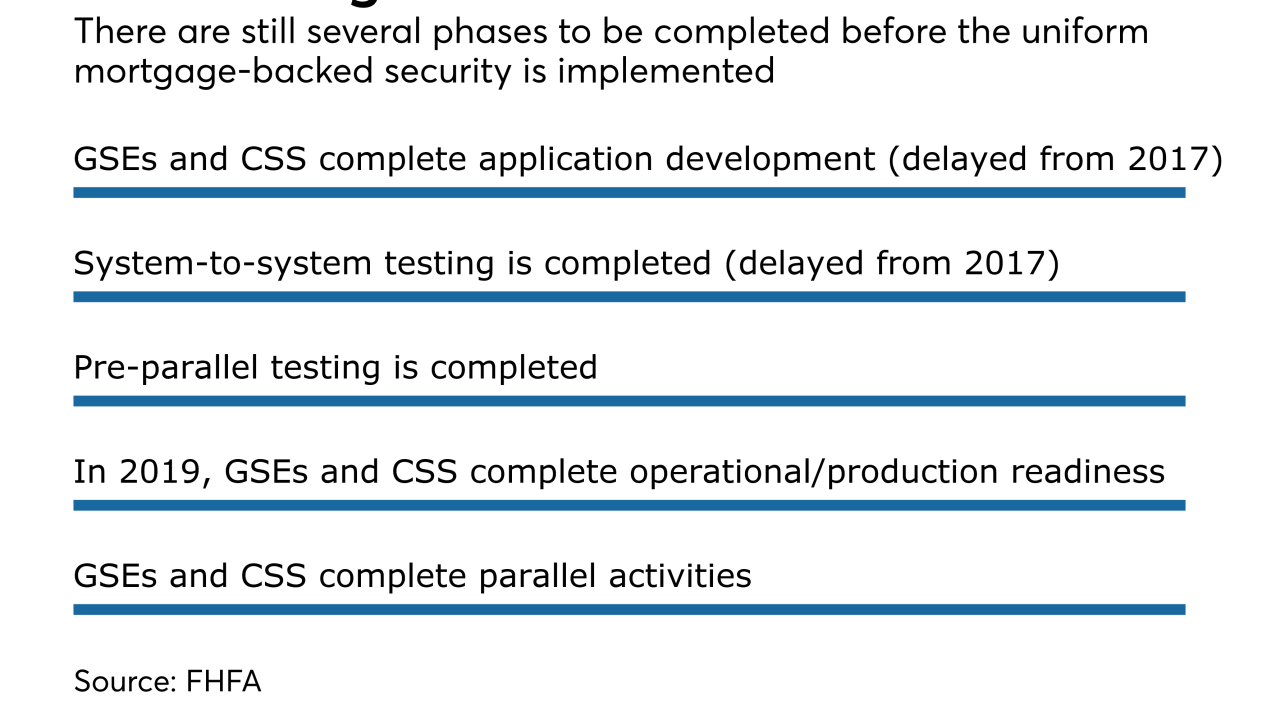-
Fannie Mae and Freddie Mac will be allowed to build capital buffers to protect against losses under an agreement between the Treasury Department and the Federal Housing Finance Agency announced on Thursday.
December 21 -
Until recently, there was a consensus among policymakers that Fannie Mae and Freddie Mac needed to be eliminated. That just changed. Here's why.
December 8 -
House Financial Services Committee Jeb Hensarling shifted tactics on housing finance reform Wednesday, acknowledging that a bill he’s pushed for years to virtually eliminate the government’s role in the mortgage market lacks the support to become law.
December 6 -
Testing of the common securitization platform is taking longer than expected, but the Federal Housing Finance Agency said it won't delay the 2019 launch of Fannie Mae and Freddie Mac's new single "uniform mortgage-backed security."
December 4 -
The financial services industry has cheered a proposed reduction in the corporate tax rate, but a lower rate could force Fannie Mae and Freddie Mac to write down assets, increasing the odds that the companies will need Treasury support.
November 29 -
Mark Calabria, the chief economic adviser to Vice President Mike Pence, said the administration is focused for now on more pressing issues than GSE reform, including addressing housing damage from recent hurricanes.
November 1 -
Though FHFA Director Mel Watt stopped short of saying he would break with a Treasury agreement that forces all profits of the GSEs to go to the government, he emphasized that it couldn’t continue indefinitely.
October 3 -
The gulf between those at the upper ends of the wealth ladder and lower-income Americans has worsened markedly since the financial crisis, despite the trillions of subsidies that taxpayers provide for housing.
August 21
-
Dividend payments by Fannie Mae and Freddie Mac are due to come one day after the U.S. is estimated to hit the debt ceiling, raising the stakes in the debate over whether those payments should continue.
August 9 -
Credit risk transfers have emerged as more than just a method for mitigating taxpayer exposure. They could be a key component of comprehensive housing finance reform.
August 4 Moody's Analytics
Moody's Analytics






